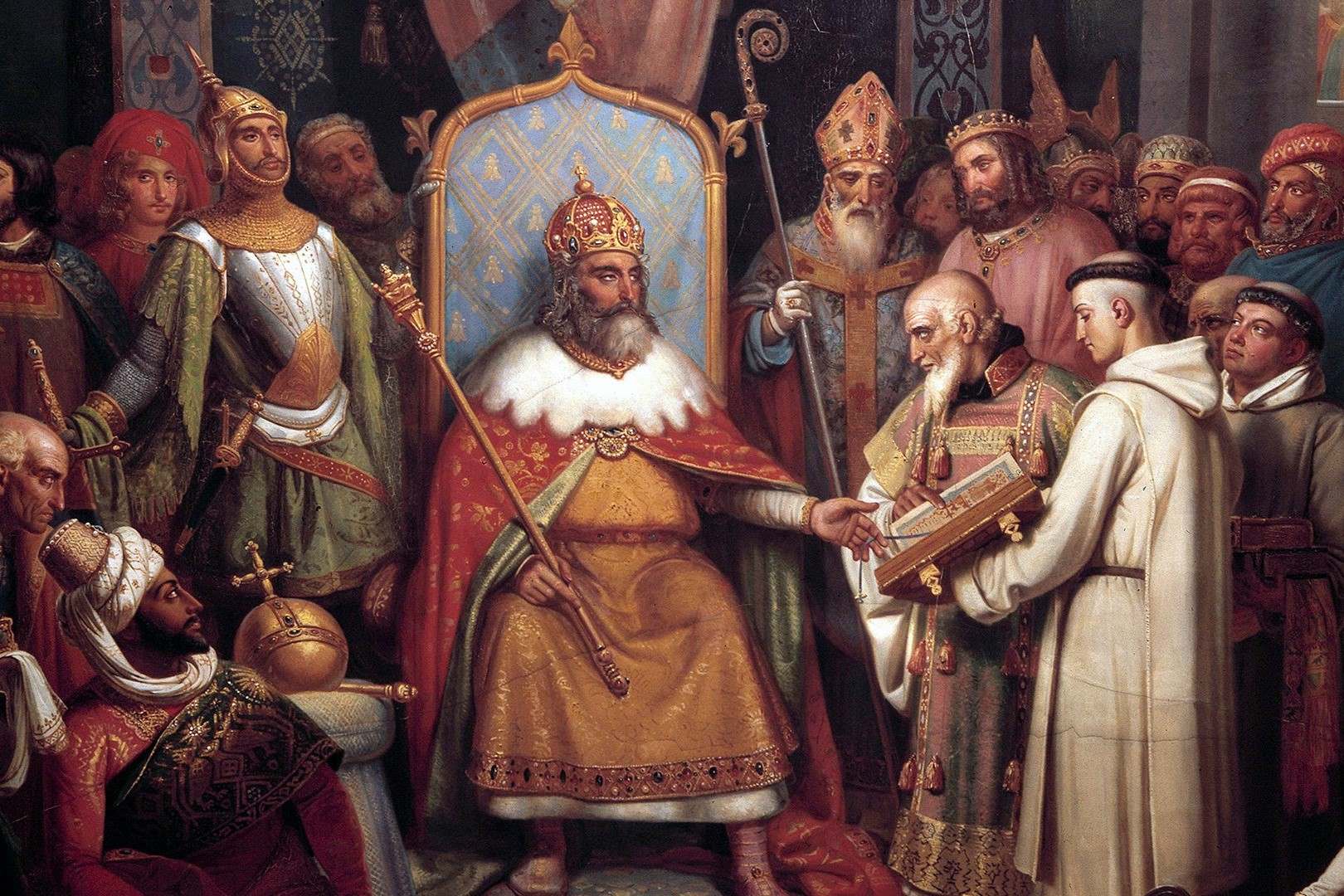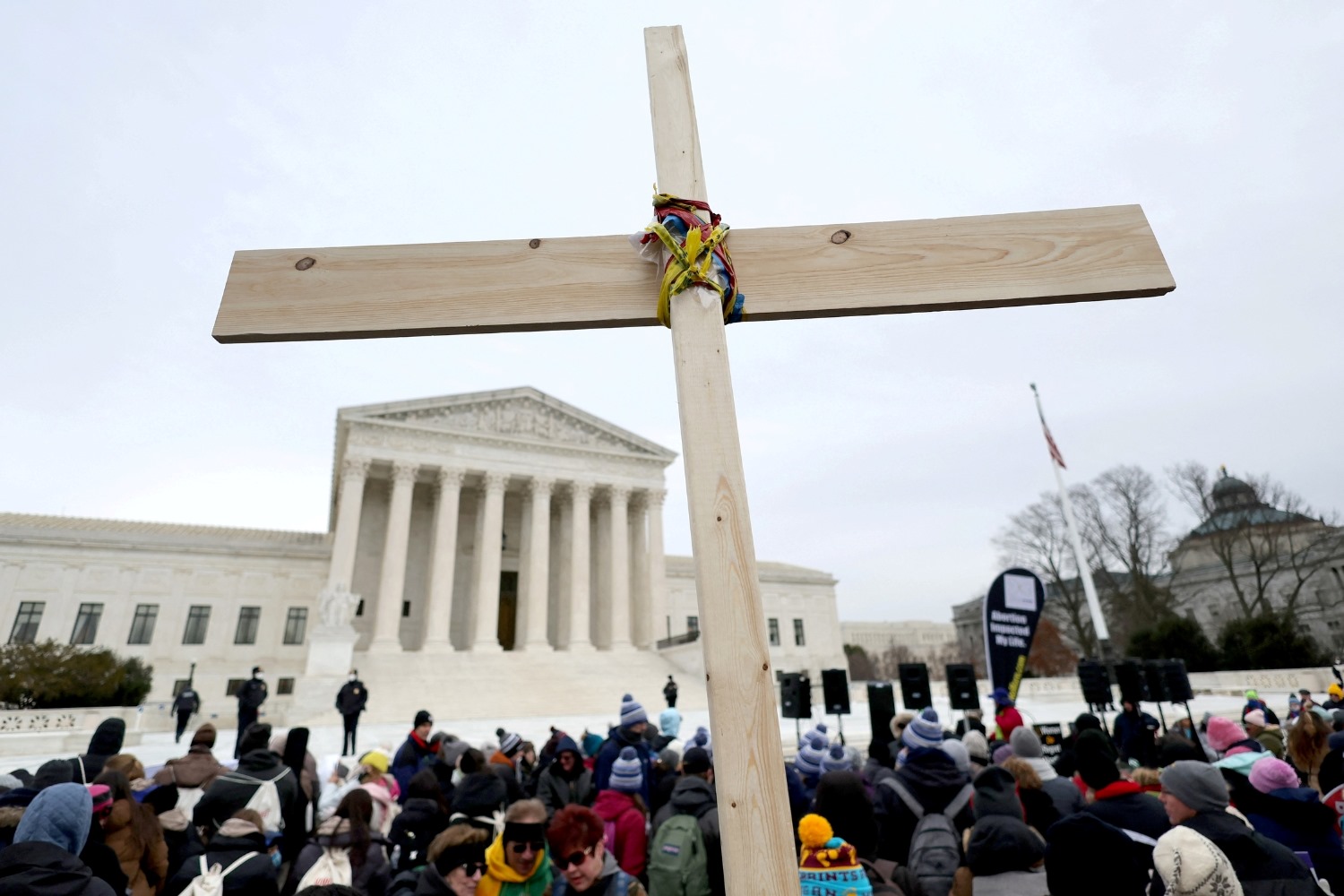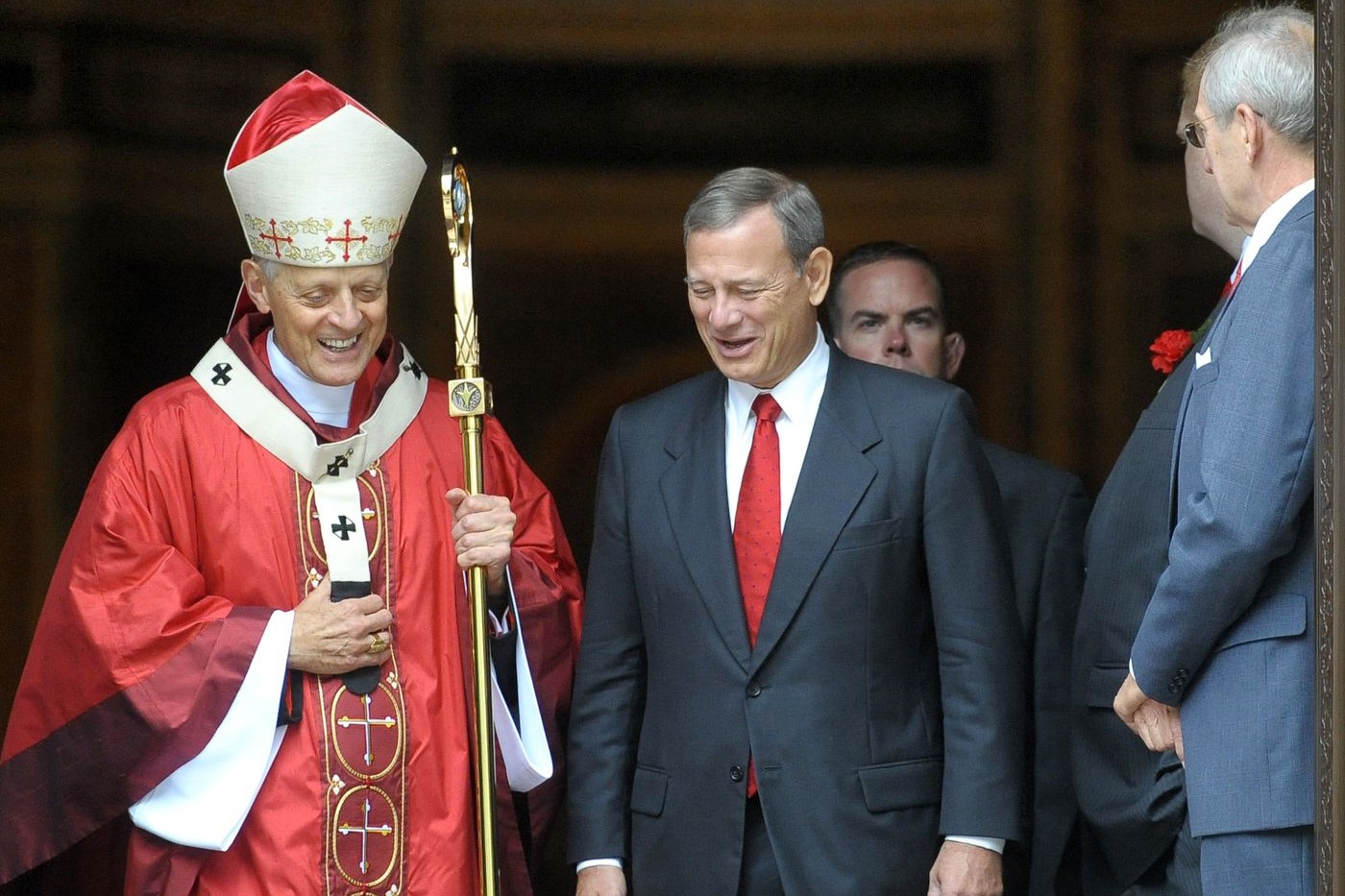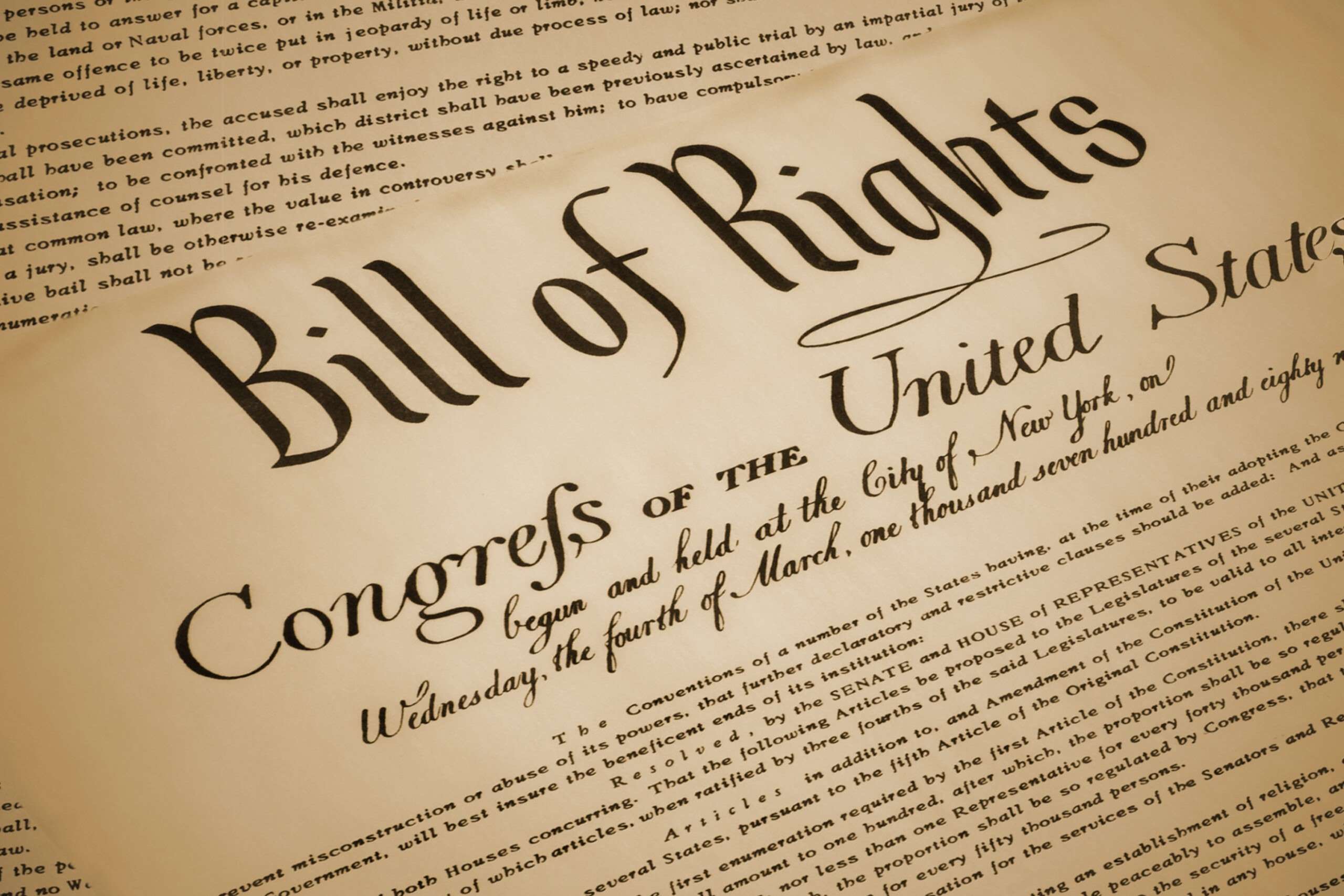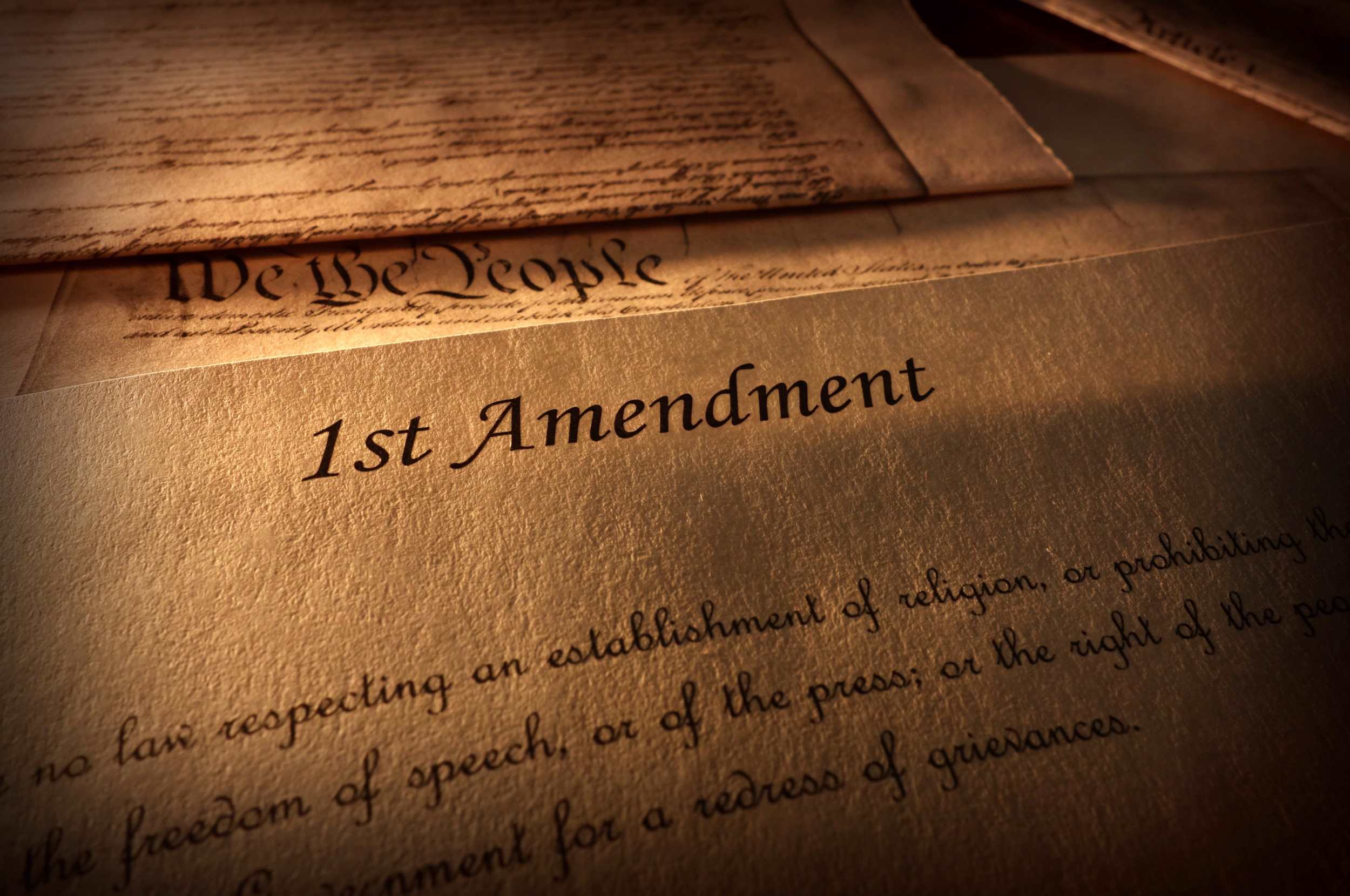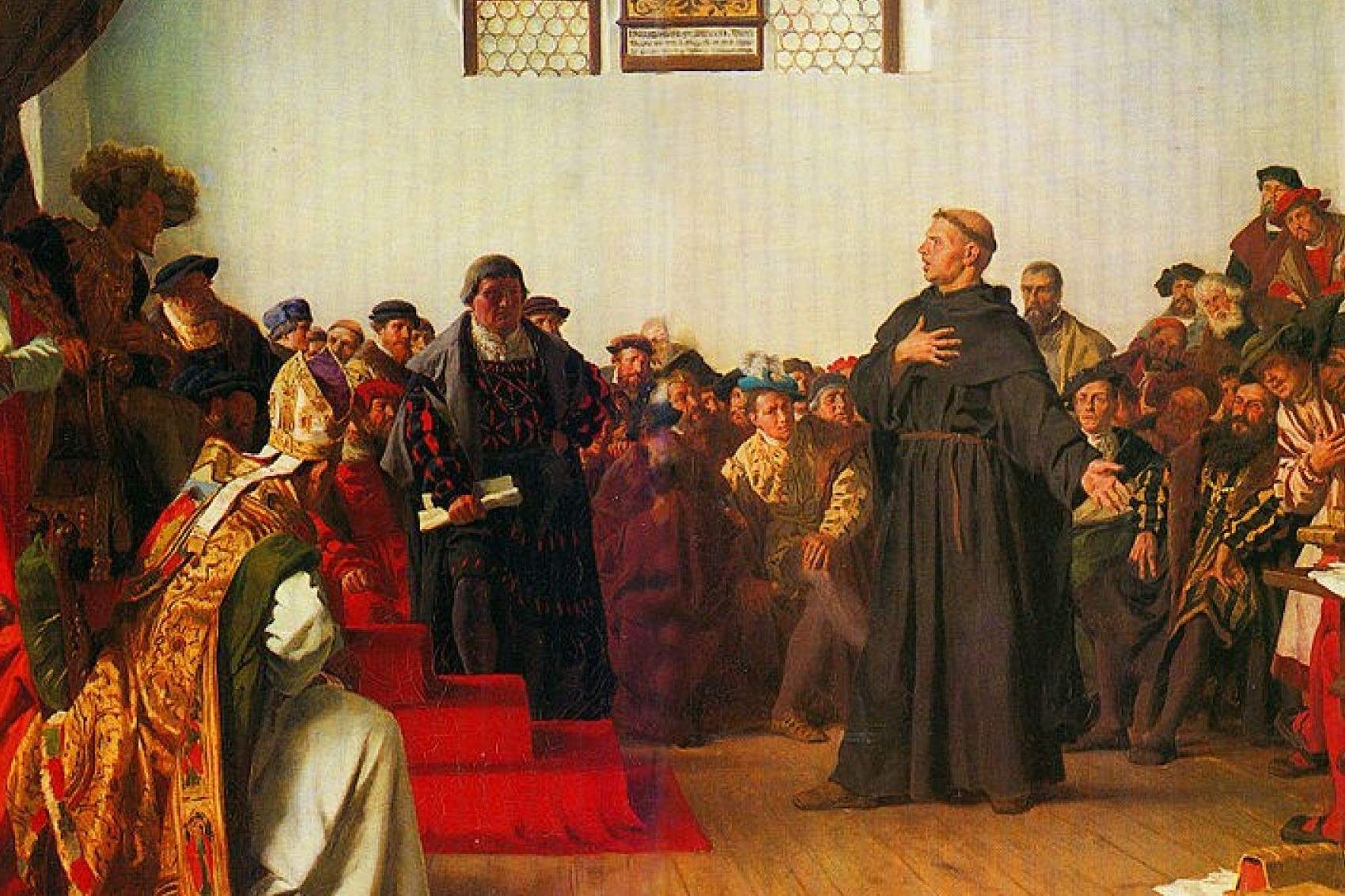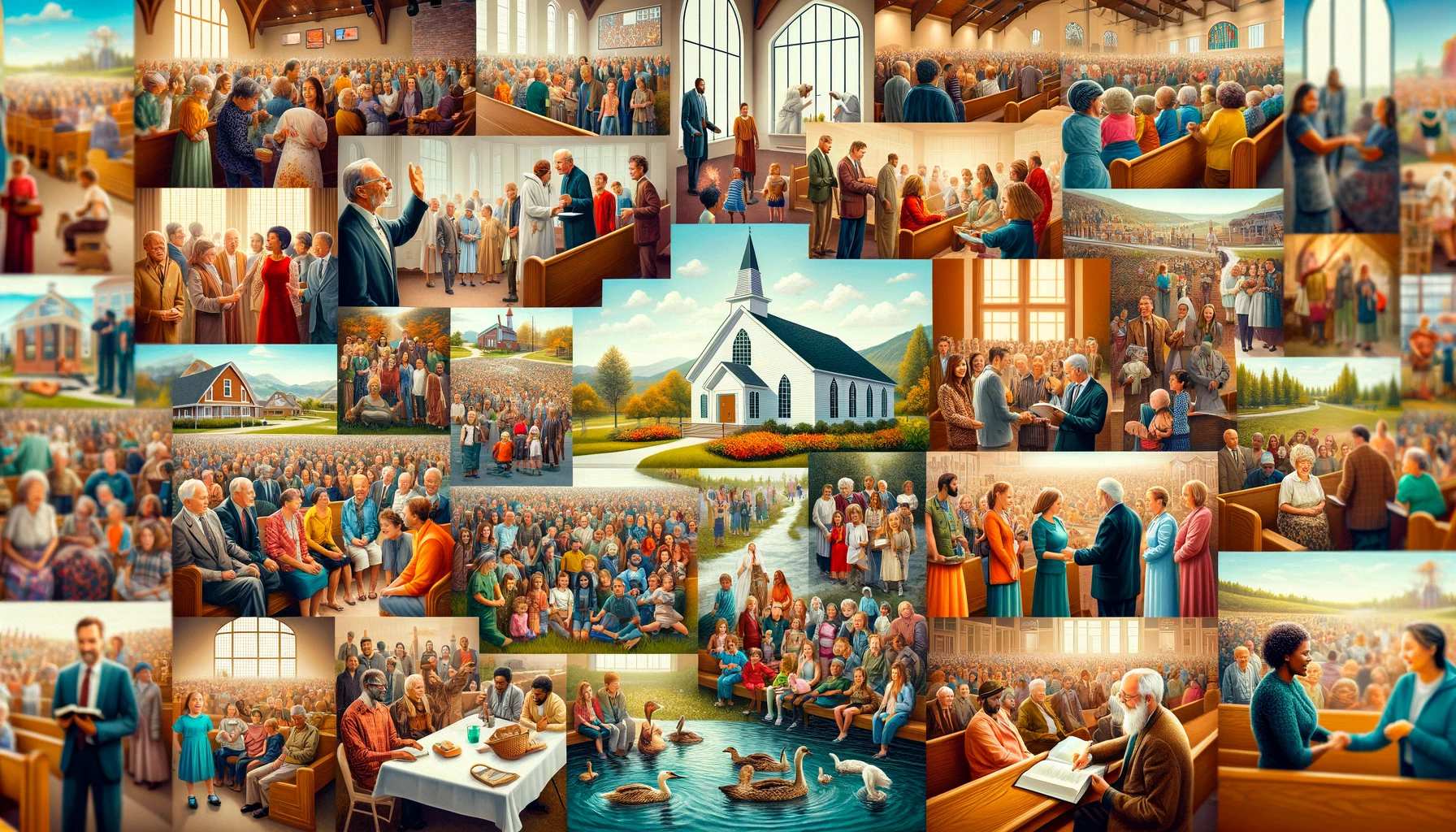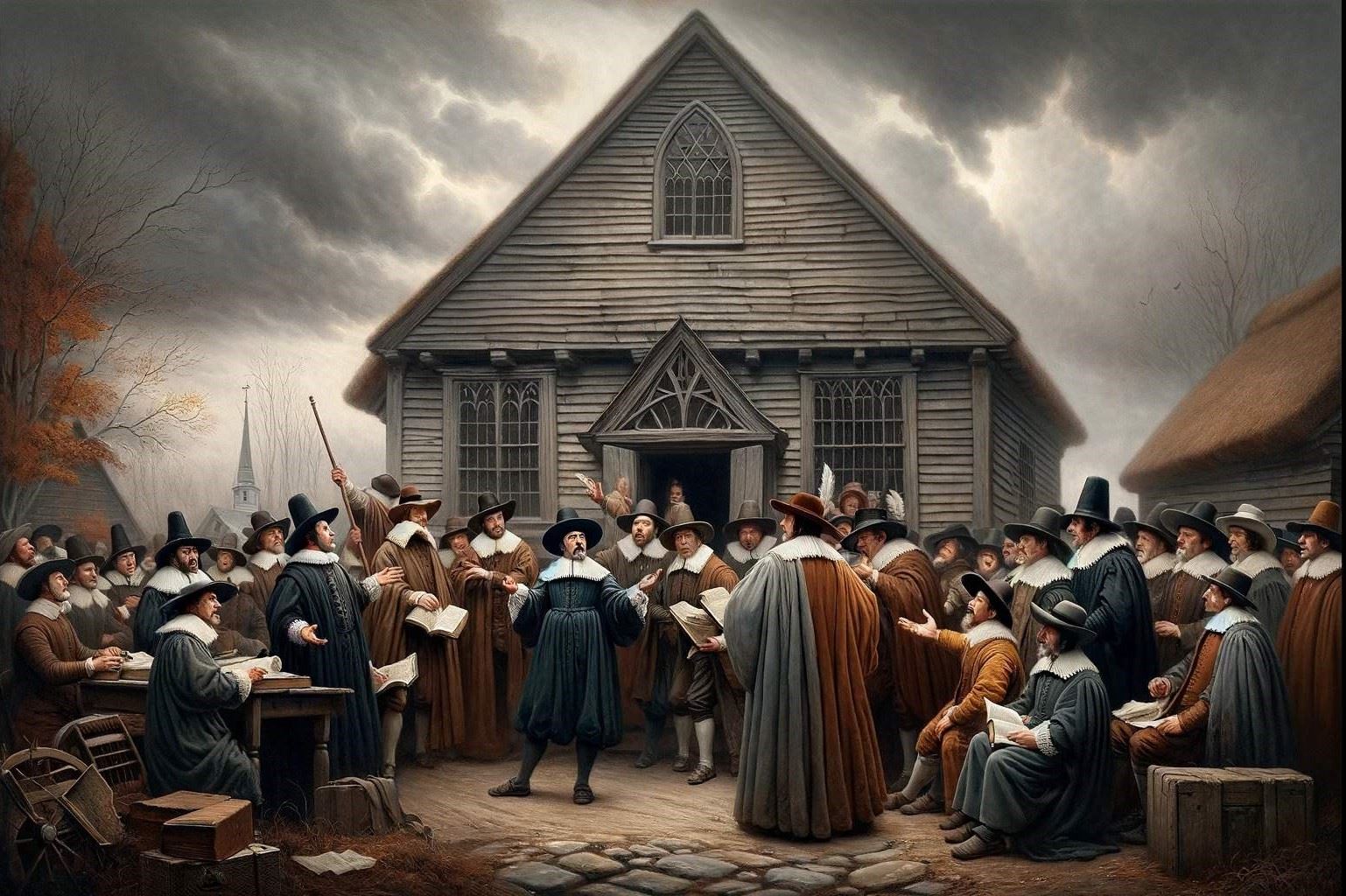Home>Theology and Spirituality>How Does Dorothy Day’S Life Embody The Relationship Between The Church And The State?
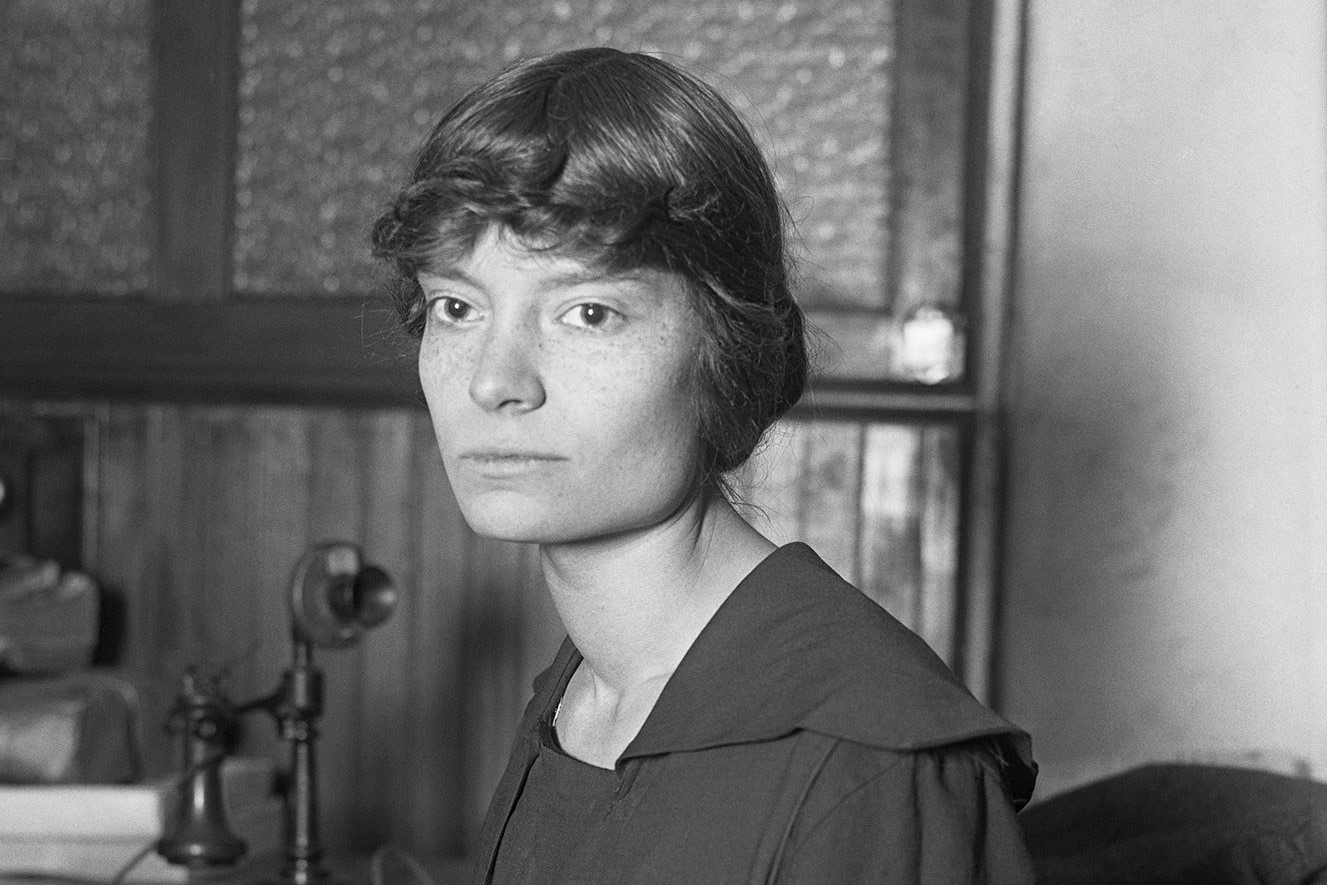

Theology and Spirituality
How Does Dorothy Day’S Life Embody The Relationship Between The Church And The State?
Published: February 11, 2024
Ericka Andersen, an editor at Christian.net, expertly merges digital strategy with content creation, focusing on faith and societal issues. Her communication skills enhance the platform's engaging narratives, fostering meaningful dialogue on belief's impact on society.
Discover how Dorothy Day's life exemplifies the intricate interplay between the Church and the State, exploring the intersection of theology and spirituality. Gain insights into this compelling relationship.
(Many of the links in this article redirect to a specific reviewed product. Your purchase of these products through affiliate links helps to generate commission for Christian.net, at no extra cost. Learn more)
Table of Contents
Introduction
Dorothy Day, a prominent figure in American Catholicism, exemplifies the intricate interplay between the church and the state through her remarkable life and work. Her unwavering commitment to social justice, pacifism, and the Catholic faith positioned her as a pivotal figure in the 20th century. Day's journey from a bohemian journalist to a devout Catholic activist mirrors the complex relationship between religious convictions and civic responsibilities.
Throughout her life, Day navigated the tension between her religious beliefs and the demands of the state, offering profound insights into the challenges and opportunities inherent in this dynamic. By delving into Day's experiences, we can gain a deeper understanding of how individuals can effectively engage with the state while upholding their spiritual principles.
As we explore Day's life, we will uncover the pivotal moments that shaped her worldview and led her to establish the Catholic Worker Movement. We will also delve into her unwavering advocacy for social justice and pacifism, which often brought her into direct confrontation with the state. Furthermore, we will examine the enduring impact of her actions on contemporary discussions surrounding the relationship between the church and the state.
Dorothy Day's life serves as a compelling lens through which to examine the complexities of the church-state relationship. Her legacy continues to inspire individuals to critically evaluate the intersection of faith, activism, and governance, making her a timeless symbol of courage and conviction. Through an exploration of her life and work, we can glean valuable insights into the enduring relevance of her efforts in shaping contemporary dialogues on the church and the state.
Early Life and Conversion to Catholicism
Dorothy Day's early life was marked by a deep yearning for purpose and meaning, which ultimately led her to embrace Catholicism. Born in Brooklyn, New York, in 1897, Day experienced a childhood shaped by her father's journalism career and her family's progressive political beliefs. These formative years instilled in her a passion for social justice and a keen awareness of the disparities and injustices prevalent in society.
Day's intellectual curiosity and quest for truth led her to pursue a career in journalism, where she became involved in leftist and bohemian circles in New York City. However, her life took a transformative turn when she encountered the Catholic faith. The pivotal moment occurred in 1927 when she gave birth to her daughter and experienced a profound spiritual awakening. This awakening prompted her to seek solace and guidance within the Catholic Church, ultimately leading to her conversion to Catholicism in 1927.
Day's conversion was not merely a personal spiritual journey; it also marked the beginning of her lifelong commitment to intertwining her faith with social activism. Embracing the teachings of the Catholic Church, particularly its emphasis on serving the marginalized and upholding human dignity, Day embarked on a path that would significantly impact the church-state relationship.
Her conversion to Catholicism served as the foundation for her future endeavors, shaping her unwavering dedication to addressing social inequalities and advocating for the rights of the poor and marginalized. This pivotal juncture in her life set the stage for her to become a transformative figure in the realms of faith, social justice, and the intersection of the church and the state.
Day's journey from a bohemian journalist to a devout Catholic activist underscores the profound impact of her conversion on her worldview and subsequent actions. Her early life experiences and her embrace of Catholicism laid the groundwork for her future endeavors, positioning her as a trailblazer in the ongoing dialogue surrounding the church's role in addressing societal injustices and engaging with the state.
Dorothy Day's conversion to Catholicism marked the genesis of her remarkable journey, setting the stage for her to become a leading voice in advocating for the convergence of faith and social responsibility. This pivotal phase in her life laid the groundwork for her influential role in shaping the church-state relationship and her enduring legacy as a champion of social justice and compassion.
Founding of the Catholic Worker Movement
In 1933, Dorothy Day, along with Peter Maurin, founded the Catholic Worker Movement, a radical yet deeply spiritual initiative aimed at addressing the pressing social issues of the time. The movement sought to embody the principles of Catholic social teaching by establishing "houses of hospitality" where the destitute and homeless could find refuge, nourishment, and a sense of community. These houses, often located in impoverished urban areas, provided a tangible expression of Day's commitment to living out the Gospel message of love and solidarity.
Central to the Catholic Worker Movement was the publication of its newspaper, The Catholic Worker, which served as a platform for advocating social justice, nonviolence, and communal living. Through the publication, Day and her colleagues disseminated their vision of a society rooted in compassion and mutual aid, challenging the prevailing economic and political structures that perpetuated poverty and inequality.
The movement's philosophy was deeply rooted in the principles of distributism, a socioeconomic theory emphasizing widespread ownership of property and the decentralization of economic power. This vision of a society built on small, self-sustaining communities resonated with Day's belief in the dignity of every individual and the importance of fostering a sense of solidarity among all members of society.
The Catholic Worker Movement also espoused a staunch commitment to pacifism, particularly during the tumultuous periods of World War II and the Cold War. Day's unwavering advocacy for nonviolent resistance and her vocal opposition to war and militarism positioned the movement as a countercultural force challenging the prevailing attitudes of the era.
Through the Catholic Worker Movement, Day sought to bridge the gap between the church and the state by actively engaging with both entities. The movement's emphasis on direct action, voluntary poverty, and communal living presented a compelling alternative to the dominant socioeconomic structures, while also prompting critical reflection on the role of the state in addressing systemic injustices.
The founding of the Catholic Worker Movement marked a pivotal moment in Day's legacy, solidifying her reputation as a tireless advocate for the marginalized and a vocal critic of societal inequities. The movement's enduring impact continues to inspire individuals to confront social issues with compassion and to reevaluate the relationship between the church and the state in the pursuit of a more just and equitable society.
Advocacy for Social Justice and Pacifism
Dorothy Day's advocacy for social justice and pacifism was a defining aspect of her life's work, reflecting her unwavering commitment to addressing systemic injustices and promoting nonviolent solutions to societal conflicts. At the heart of Day's activism was a deep-rooted belief in the inherent dignity of every individual, regardless of their socioeconomic status or background. This foundational principle propelled her to tirelessly champion the rights of the marginalized and to challenge the prevailing structures that perpetuated inequality.
Central to Day's advocacy was her steadfast dedication to the principles of Catholic social teaching, which emphasized the moral imperative of caring for the poor, promoting solidarity, and pursuing peace. Through her involvement in the Catholic Worker Movement, Day actively sought to create tangible expressions of these principles, establishing houses of hospitality and advocating for economic redistribution to address the plight of the impoverished.
Furthermore, Day's commitment to pacifism and nonviolent resistance positioned her as a vocal critic of war and militarism. In an era marked by global conflicts and escalating tensions, her unwavering stance against violence and her advocacy for peaceful alternatives served as a beacon of hope and moral clarity. Her writings and public statements underscored the moral and ethical dimensions of pacifism, challenging individuals to reevaluate their attitudes towards conflict and to consider nonviolent approaches as viable solutions to international disputes.
Day's advocacy for social justice and pacifism was not confined to theoretical discourse; rather, it permeated her everyday actions and interactions. Her willingness to engage in acts of civil disobedience, including protests and demonstrations, exemplified her steadfast commitment to effecting tangible change and challenging unjust laws and policies. By embodying the principles she espoused, Day inspired countless individuals to actively engage with the issues of their time and to uphold the values of compassion, justice, and nonviolence.
In essence, Day's advocacy for social justice and pacifism serves as a testament to the transformative power of moral conviction and compassionate action. Her unwavering dedication to addressing societal inequalities and promoting nonviolent solutions continues to resonate with contemporary movements and individuals striving to create a more just and peaceful world. Through her life's work, Day exemplified the profound impact of aligning one's spiritual beliefs with a steadfast commitment to social transformation, leaving an indelible mark on the ongoing dialogue surrounding the church, the state, and the pursuit of a more equitable society.
Relationship with the State and Civil Disobedience
Dorothy Day's relationship with the state was characterized by a profound tension stemming from her unwavering commitment to social justice and her advocacy for nonviolent resistance. Throughout her activism, Day encountered numerous instances where her deeply held convictions brought her into direct confrontation with the authorities, leading to acts of civil disobedience and enduring legal repercussions.
One notable example of Day's principled stance against the state's actions was her vocal opposition to conscription during World War I. In 1917, she participated in anti-war protests and openly expressed her conscientious objection to the war, a stance rooted in her pacifist beliefs and commitment to nonviolence. Her refusal to comply with the state's mandates regarding military service resulted in her arrest and imprisonment, underscoring the profound clash between her moral convictions and the demands of the government.
Furthermore, Day's advocacy for the rights of workers and her involvement in labor strikes often placed her at odds with the state and corporate interests. Her unwavering support for labor movements and her vocal criticism of exploitative labor practices led to her participation in protests and demonstrations, challenging the prevailing power structures and advocating for the rights of the working class. These actions frequently led to her arrest and imprisonment, as she fearlessly stood in solidarity with those marginalized by societal and economic injustices.
Day's commitment to civil disobedience was deeply rooted in her belief in the transformative power of nonviolent resistance. Her actions exemplified a conscientious effort to confront unjust laws and policies, often at great personal cost. Through her steadfast refusal to acquiesce to systemic injustices, Day embodied the principles of civil disobedience espoused by influential figures such as Mahatma Gandhi and Martin Luther King Jr., demonstrating the potential for moral courage to effect meaningful change within society.
In essence, Day's relationship with the state and her engagement in acts of civil disobedience underscored the profound tension between upholding moral principles and navigating the demands of governmental authority. Her unwavering commitment to social justice and nonviolent resistance positioned her as a formidable advocate for transformative change, challenging the status quo and inspiring future generations to critically evaluate the ethical dimensions of their interactions with the state.
Influence on Church-State Relations Today
Dorothy Day's profound influence on church-state relations continues to reverberate in contemporary discourse, offering invaluable insights into the complexities of navigating the intersection between religious convictions and civic governance. Her unwavering commitment to social justice, pacifism, and the ethical imperative of caring for the marginalized has left an indelible mark on the ongoing dialogue surrounding the church's engagement with the state.
Day's legacy serves as a compelling catalyst for reevaluating the role of religious institutions in addressing societal inequities and advocating for systemic change. Her steadfast dedication to embodying the principles of Catholic social teaching, particularly in the context of the Catholic Worker Movement, underscores the potential for religious organizations to actively participate in addressing pressing social issues. By establishing houses of hospitality and advocating for economic redistribution, Day exemplified the transformative impact of religiously motivated initiatives in fostering compassion and solidarity within communities.
Furthermore, Day's advocacy for pacifism and nonviolent resistance offers a poignant framework for reimagining the ethical dimensions of statecraft and international relations. In an era marked by global conflicts and geopolitical tensions, her unwavering stance against violence and militarism challenges contemporary policymakers and citizens to critically evaluate the moral implications of state-sanctioned actions. Her principled opposition to war serves as a timeless reminder of the moral imperative to pursue peaceful alternatives and to prioritize the preservation of human dignity in the face of political upheaval.
Moreover, Day's engagement in acts of civil disobedience and her willingness to confront unjust laws and policies underscore the enduring relevance of ethical dissent in shaping the dynamics of church-state relations. Her courageous defiance of systemic injustices serves as a poignant example of the potential for individuals and religious institutions to hold the state accountable to higher moral standards, fostering a more just and equitable society.
In essence, Dorothy Day's influence on church-state relations today transcends historical context, offering a compelling framework for reimagining the collaborative potential of religious institutions and the ethical imperatives that should underpin state governance. Her enduring legacy continues to inspire individuals and communities to critically engage with the complexities of the church-state relationship, advocating for a more compassionate, just, and inclusive society.
Conclusion
Dorothy Day's remarkable life embodies the intricate and often challenging relationship between the church and the state. From her early experiences as a bohemian journalist to her conversion to Catholicism and the founding of the Catholic Worker Movement, Day's journey reflects the profound impact of aligning spiritual convictions with social activism. Her unwavering commitment to social justice, pacifism, and the ethical imperative of caring for the marginalized positioned her as a transformative figure in the 20th century, leaving an enduring legacy that continues to shape contemporary discussions on the church-state relationship.
Through her advocacy for social justice and pacifism, Day challenged the prevailing socioeconomic and political structures, offering a compelling alternative rooted in compassion and solidarity. Her engagement in acts of civil disobedience underscored the tension between upholding moral principles and navigating the demands of governmental authority, inspiring future generations to critically evaluate the ethical dimensions of their interactions with the state.
Furthermore, Day's influence on church-state relations today serves as a poignant catalyst for reevaluating the role of religious institutions in addressing societal inequities and advocating for systemic change. Her unwavering dedication to embodying the principles of Catholic social teaching and her advocacy for pacifism offer invaluable insights into the transformative impact of religiously motivated initiatives in fostering compassion and solidarity within communities.
In essence, Dorothy Day's enduring legacy transcends historical context, offering a compelling framework for reimagining the collaborative potential of religious institutions and the ethical imperatives that should underpin state governance. Her life's work continues to inspire individuals and communities to critically engage with the complexities of the church-state relationship, advocating for a more compassionate, just, and inclusive society. As we reflect on Day's profound impact, we are reminded of the transformative power of aligning faith with social responsibility, and the enduring relevance of her efforts in shaping contemporary dialogues on the church and the state.
